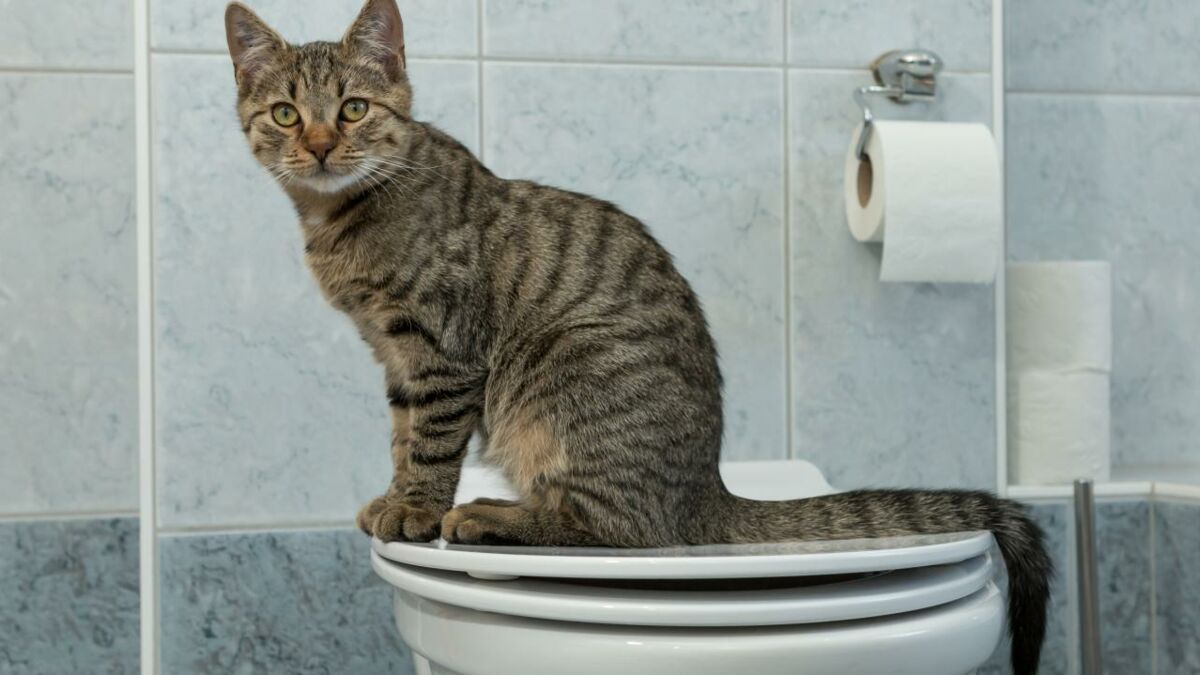Why Flushing Cat Poop Down Your Toilet Is Bad - Tips for Correct Handling
Why Flushing Cat Poop Down Your Toilet Is Bad - Tips for Correct Handling
Blog Article
What're your opinions about How to Dispose of Cat Poop and Litter Without Plastic Bags?

Intro
As feline owners, it's important to bear in mind how we take care of our feline close friends' waste. While it might appear convenient to purge pet cat poop down the bathroom, this technique can have harmful repercussions for both the atmosphere and human wellness.
Alternatives to Flushing
Thankfully, there are much safer and much more responsible ways to dispose of cat poop. Take into consideration the following options:
1. Scoop and Dispose in Trash
The most typical method of getting rid of pet cat poop is to scoop it right into an eco-friendly bag and throw it in the trash. Make certain to utilize a specialized trash scoop and deal with the waste promptly.
2. Usage Biodegradable Litter
Go with eco-friendly feline clutter made from products such as corn or wheat. These clutters are eco-friendly and can be safely taken care of in the trash.
3. Bury in the Yard
If you have a backyard, take into consideration hiding feline waste in a marked area far from vegetable gardens and water sources. Be sure to dig deep sufficient to prevent contamination of groundwater.
4. Install a Pet Waste Disposal System
Invest in an animal garbage disposal system specifically made for feline waste. These systems use enzymes to break down the waste, reducing smell and environmental impact.
Wellness Risks
In addition to environmental worries, flushing feline waste can also posture health and wellness risks to people. Feline feces may consist of Toxoplasma gondii, a parasite that can cause toxoplasmosis-- a possibly severe illness, particularly for pregnant females and individuals with weakened body immune systems.
Ecological Impact
Flushing pet cat poop introduces hazardous microorganisms and parasites into the water system, presenting a significant danger to water ecological communities. These pollutants can negatively influence marine life and concession water high quality.
Conclusion
Responsible pet possession extends past offering food and shelter-- it additionally entails proper waste management. By avoiding flushing cat poop down the commode and going with different disposal techniques, we can minimize our environmental impact and safeguard human wellness.
Why You Should Never Flush Cat Poop Down the Toilet
A rose by any other name might smell as sweet, but not all poop is created equal. Toilets, and our sewage systems, are designed for human excrement, not animal waste. It might seem like it couldn’t hurt to toss cat feces into the loo, but it’s not a good idea to flush cat poop in the toilet.
First and foremost, assuming your cat uses a litter box, any waste is going to have litter on it. And even the smallest amount of litter can wreak havoc on plumbing.
Over time, small amounts build up, filling up your septic system. Most litter sold today is clumping; it is made from a type of clay that hardens when it gets wet. Ever tried to scrape old clumps from the bottom of a litter box? You know just how cement-hard it can get!
Now imagine just a small clump of that stuck in your pipes. A simple de-clogger like Drano isn’t going to cut it. And that means it’s going to cost you big time to fix it.
Parasitic Contamination
Believe it or not, your healthy kitty may be harboring a nasty parasite. Only cats excrete Toxoplasma in their feces. Yet it rarely causes serious health issues in the cats that are infected. Most people will be fine too if infected. Only pregnant women and people with compromised immune systems are at risk. (If you’ve ever heard how women who are expecting are excused from litter cleaning duty, Toxoplasma is why.)
But other animals may have a problem if infected with the parasite. And human water treatment systems aren’t designed to handle it. As a result, the systems don’t remove the parasite before discharging wastewater into local waterways. Fish, shellfish, and other marine life — otters in particular — are susceptible to toxoplasma. If exposed, most will end up with brain damage and many will die.
Depending on the species of fish, they may end up on someone’s fish hook and, ultimately on someone’s dinner plate. If that someone has a chronic illness, they’re at risk.
Skip the Toilet Training
We know there are folks out there who like to toilet train their cats. And we give them props, it takes a lot of work. But thanks to the toxoplasma, it’s not a good idea.

As a passionate person who reads on Can You Flush Cat Poo or Litter Down the Toilet?, I was thinking sharing that excerpt was important. Sharing is caring. You just don't know, you could be helping someone out. Thank you for taking the time to read it.
Get Offer Report this page